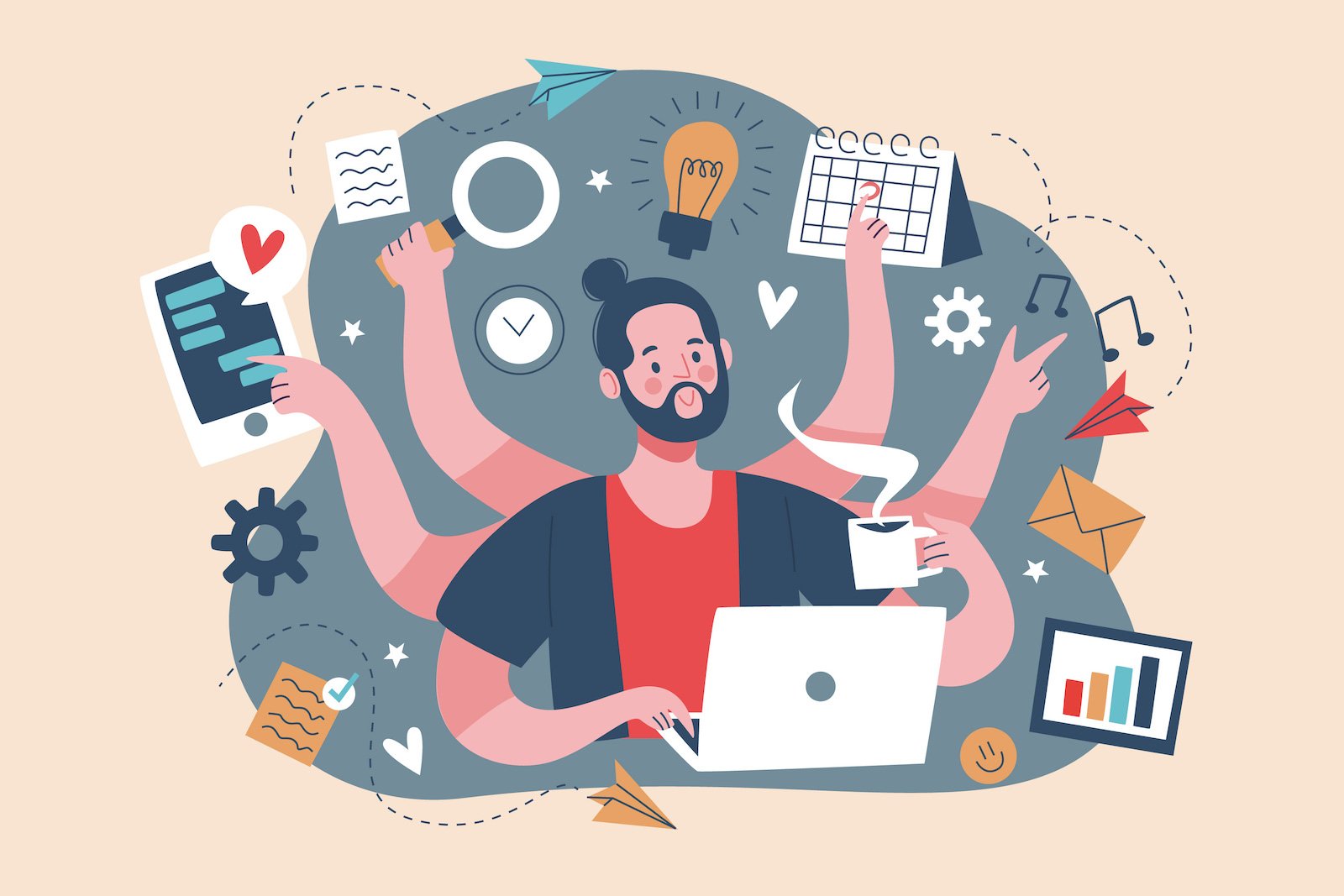There are productivity tips that we've all read about hundreds of times. There are tips that we know work, but… somehow we still don't apply them. There is no change without effort to rearrange your habits, without thinking why we do things the way we do and without admitting that we cheat a little at times. Mainly ourselves.
Below you can find methods for more productive and meaningful work that have proven successful for me and are based on our team experience at USEO, but can also be used successfully in other industries. Simple methods that work - as long as they are implemented and adapted to the individual context.
Take notes and set reminders
To-do list is a basic tool, but it took me a while to realize that I need it. Earlier, it seemed to me that I would remember everything, that I should remember everything. Now I know that it is more effective to write down and… not to remember at all.
When I think of something while doing another task, I put it on the list, set the date and time for the reminder, and instantly forget it. It's liberating - dozens of little things don't take up my brain's memory, I'm not distracted by the constant thought "just don’t forget", it’s just much less stressful. Unsaved tasks are like notifications constantly popping up in your head. In times of total overstimulation from everything around, I prefer to have a specific reminder that will appear on my phone or computer when I need to take care of it rather than dozens of recurring thoughts in my mind.
Usually, in my to-do list, I write down tasks such as: issue an invoice, send an e-mail, arrange documents, contact someone, or even what to buy in a grocery shop later in the afternoon. I carry out the task when the notification pops up, I tick it off, forget it. I also set reminders for meetings and important events, but I do it in the calendar.
Notes perform another function for me. They are a collection of information that I keep coming back to from time to time. Much less dynamic than a to-do list. In my notes I keep, for example, the content of job advertisements, information about candidates, recruitment questions, company data that I often need (notes can be encrypted, so everything is safe). I also have code snippets in them, which I often use.
Of course, everyone must adapt this system to himself – maybe someone needs a to-do list, maybe someone does not need notifications, or maybe someone just needs more of them. For me, the most important thing is that all the applications I use can be integrated with both the phone and the computer. Then I have everything at hand, not only in the office.
Do what you don't want to do first
We all have responsibilities that we hate. Or tasks that we can't get down to because we don't really know how. The problem is that even if we avoid them, they will eventually get us. Nobody will do them for us, and the longer we procrastinate, the more we don't want to. You probably know this feeling when an unwanted task weighs on you all day, when you keep thinking "oh no, I still have to take care of THIS one more thing", when you spend more energy on avoiding this task and doing a hundred other, less important things than you would spend on doing what you really should.
The solution is simple, but not easy. Do it first thing in the morning.
Find out time to be fully focused
Switching contexts costs a lot of energy and focus. Writing the same code will take you much more time, if every now and then someone asks you about something, answer the phone, reply to the emails that you’ve just received. Each time you switch your focus you have to find out where you stopped and get up to speed again.
So if you have a task ahead of you that cannot be broken down into smaller ones, plan a time window in which you will only deal with it. Ideally, when you are most productive and when no one is going to disturb you. (By the way: check at what point during the day you are most productive, knowing that about yourself is very useful).
Personally, sometimes I finish my work a little bit earlier, get back home, have a moment to rest and I sit down back to work in the evening. This way I can have a few hours straight when no one is interrupting me. This approach also works well if you like to wake up very early in the morning. You can use these few hours before everyone else comes to work to do the most important things.
Problems arise when you need to find such a window during the day. After all, I should not expect my employees to come home and devote the whole evening to work. If someone is a team leader and has a large team, it is enough that everyone contacts him/her about one thing every other day and suddenly he or she has no chance to do his/her own job.
In such a case you can introduce the following rule: on this or that day, at such and such hours, I am unavailable. Or set a status on Slack, I'm busy and - as long as nothing is burning so much that you can't put out the fire yourself - I'll take care of it later.
We also have the opposite rule in USEO - if you do not feel up to work, take a break. If you're supposed to sit at work just to sit in your chair, you'd better go home, rest, sleep, or take a walk. The progress of the work will be exactly the same, but at least you will be in better shape and will do the task three times faster and painless tomorrow or in a few hours.
Take care of your work environment
We all need a computer, a phone, a desk, a chair of some kind. We also have a place to work in the office or at home. If you can, it is worth choosing tools that will make us happy. Tools that not only do the work for us, but also that look nice and you want to use. After all, you use them every day. Personally, I love technological innovations. Whenever it’s possible for me to get a new computer I immediately want to work more, check everything, try everything out.
For others, the workplace may be more important - to have a comfortable chair or a place under the desk to put your feet. Or that the office has plenty of natural light or plants. Sometimes it's also worth experimenting with two monitors, a standing desk, or a mechanical keyboard, though I've noticed that over the years most programmers go back to simplicity. Young people almost always want to have two monitors, they experiment with the Dvorak keyboard, spend a lot of time getting used to it, and then they return to the standard one. But maybe it's a challenge they need to increase their creativity or commitment, at least temporarily.
For those who work remotely, from time to time, I recommend changing the environment, for example working from a cafe or using a coworking space. The human brain likes changes and works better when we provide it with new stimuli. Sometimes it is even enough to sit on another chair at the table, turn the desk the other way.
Lead a healthy lifestyle
A steady rhythm of the day, healthy eating and sports - something we all know, but it takes several years of adulthood to realize that it really has a huge impact on us. While still young we have greater processing capacity. We may not sleep or eat and we do not really feel that much difference. Later we realize that simple things such as regular sleep and valuable food affect our well-being and the level of concentration. We also start noticing that physical exercises make us feel better not only physically but above all mentally.
In my experience, when I have a regular daily routine, I can sleep an hour less and be refreshed. The body does not have to compensate for its daily unrest.
Think about the way you work
Only go to meetings where you are essential. This rule should be applied absolutely everywhere. Try to ask yourself: “Will this meeting every Tuesday at 1pm surely not succeed without you?”.
Divide large tasks into small ones that you can finish relatively quickly. When progress is visible, motivation is growing. Take notes in the code, summaries of individual parts - it will be easier to implement on the next approach.
Avoid activities that you only do out of habit. You've always been doing them, but are they really needed? Do you have to reply to the email that just arrived, or wait until you're done with what you are doing?
Focus. Have you really worked in the last hour or so, and in the meantime you checked your emails, picked up three work calls, read another productivity text, and wondered what's for dinner tonight? And you thought you were still working, right?
You will find a myriad of productivity tips on the Internet. However, none will work without your attention and effort.

